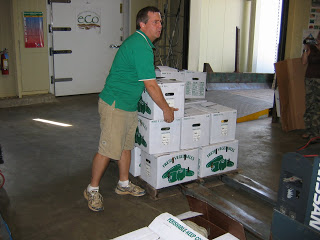Advanced Organic Horticulture Training for Extension Agents Was a Success-2009
go.ncsu.edu/readext?466779
en Español / em Português
El inglés es el idioma de control de esta página. En la medida en que haya algún conflicto entre la traducción al inglés y la traducción, el inglés prevalece.
Al hacer clic en el enlace de traducción se activa un servicio de traducción gratuito para convertir la página al español. Al igual que con cualquier traducción por Internet, la conversión no es sensible al contexto y puede que no traduzca el texto en su significado original. NC State Extension no garantiza la exactitud del texto traducido. Por favor, tenga en cuenta que algunas aplicaciones y/o servicios pueden no funcionar como se espera cuando se traducen.
Português
Inglês é o idioma de controle desta página. Na medida que haja algum conflito entre o texto original em Inglês e a tradução, o Inglês prevalece.
Ao clicar no link de tradução, um serviço gratuito de tradução será ativado para converter a página para o Português. Como em qualquer tradução pela internet, a conversão não é sensivel ao contexto e pode não ocorrer a tradução para o significado orginal. O serviço de Extensão da Carolina do Norte (NC State Extension) não garante a exatidão do texto traduzido. Por favor, observe que algumas funções ou serviços podem não funcionar como esperado após a tradução.
English
English is the controlling language of this page. To the extent there is any conflict between the English text and the translation, English controls.
Clicking on the translation link activates a free translation service to convert the page to Spanish. As with any Internet translation, the conversion is not context-sensitive and may not translate the text to its original meaning. NC State Extension does not guarantee the accuracy of the translated text. Please note that some applications and/or services may not function as expected when translated.
Collapse ▲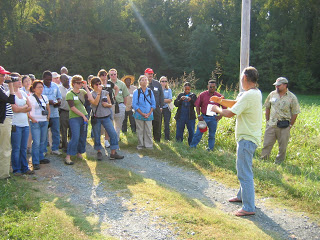
7/8/2022 – Update. This training took place thirteen years ago, but was the start of a great partnership on organic agriculture with our extension colleagues in other states. Look for articles on more recent efforts we have been engaged in.
9/11/2009 – On September 5th, I told you about the Advanced Organic Training session we had planned for extension agents from NC, SC, AR, and AL this week (see below). It’s over now, and I think we would all agree, it was a tremendous success. First of all, I have to say that the UNC Rizzo Center in Chapel Hill, NC was an incredible place to hold the three day training session. We had a very difficult time trying to find an appropriate venue for our training. We needed a place where we could all stay, eat, and learn together. We looked at various camps, hotels, and college settings and they either weren’t available when we needed them or we couldn’t afford them. The Rizzo Center is upscale, and we felt pampered, but most importantly, it met all of our needs. The meeting room was comfortable and equipped with all the electronic technology we needed to teach and demonstrate using Powerpoint, videos, and the Internet. The food was outstanding and much of it was sourced from local organic farms; some we visited on our tour. There are small meeting areas scattered throughout that accommodated our seven teams that had to meet several times to work on their projects. It was perfect.
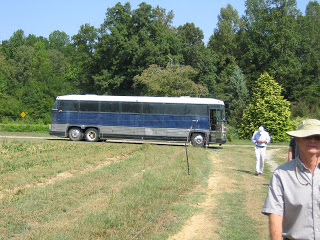
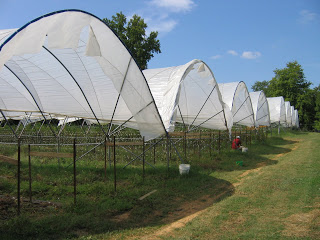
After several educational sessions this morning, we wound up the training with reports from the seven teams. We had a fictitious farm scenario with seven problems that an extension agent might be asked to solve. Each team was assigned one of the problems and had to work together to develop an answer. The reports were creative, educational, and very entertaining. I was impressed with how the everyone worked together and used what they learned over the past few days to formulate their answers.
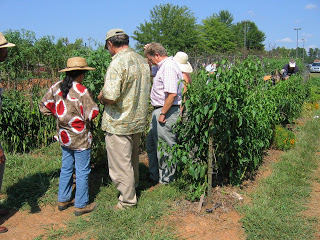
At the end, the agents reported that they really liked the format of the training and that the farm scenario and assigned problems made for a good teaching tool. They also liked having agents from different states all together to share experiences and knowledge, and they say we need to do this again in another 18 months or so. Now the project leaders have to finish the development of a series of modules to be posted on a website to use as training tools and resources for all extension agents in the South. This training was funded by a grant from the Southern SARE program.
